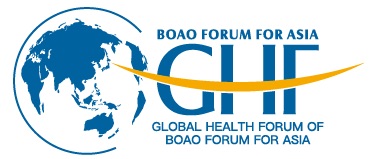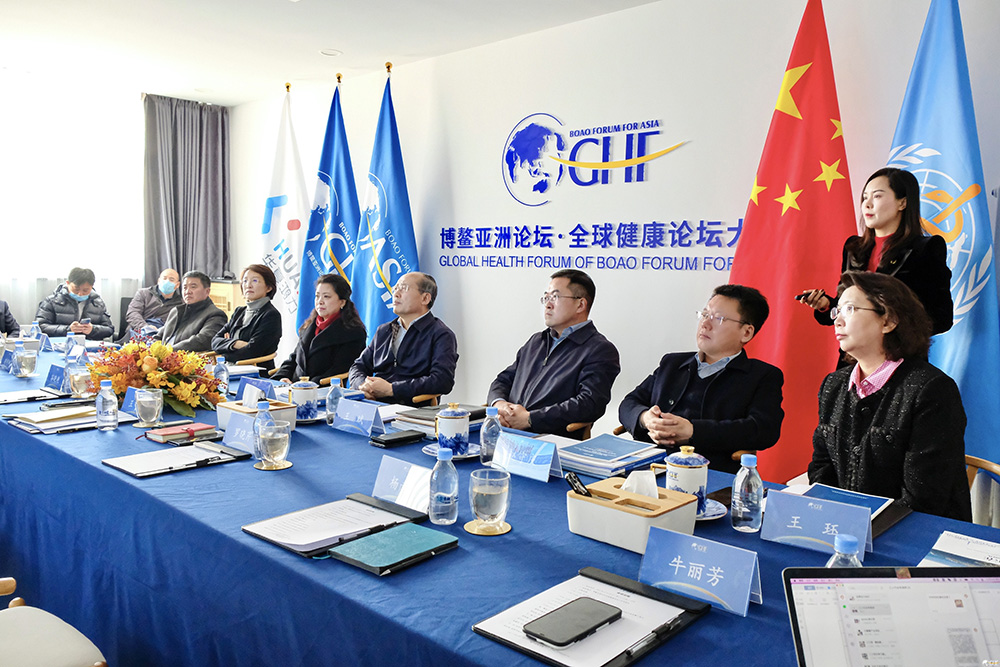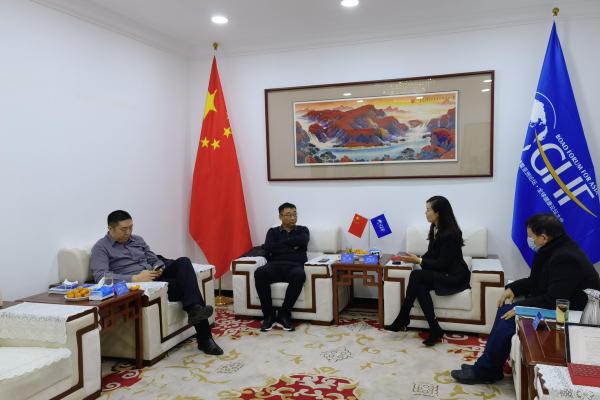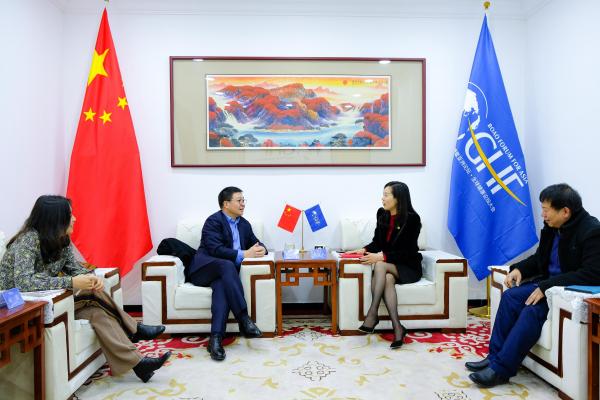Born in Hong Kong, China, Margaret Chan is the first Chinese to serve as director general of the World Health Organization. Her friend Wu Ting-Yuk, a member of the Standing Committee of the National Committee of the Chinese People's Political Consultative Conference (CPPCC), said in an interview with Xinhua News Agency that Margaret Chan is "the elite of the elite in Hong Kong" and that she has been working for the good of the world people in the WHO for 10 years.

Margaret Chan (Photo by Wang Yuan, China News Service)
Margaret Chan joined WHO in 2003 and served as Director of the Department of Human Environmental Protection, Director of the Department of Surveillance and Response to Infectious Diseases, Representative of the Director-General for Pandemic Influenza and Assistant Director-General for Infectious Diseases before running for the post of WHO Director-General in 2006.
Hu Dingxu went to Geneva with then Chinese Minister of Health Gao Qiang in 2006 to support Margaret Chan's candidacy. He remembers that the competition was fierce, and Margaret Chan had been leading, but not by much, and nobody knew who would be elected until the last minute. There were three votes left, and finally two votes left. "We were watching, she won when she got this vote. Ah! All were very happy." Wu Ting-Yuk and Gao Qiang waited for the result in the conference room, and together they experienced that day from waiting in the nervousness to knowing the result with happiness after being elected.
Margaret Chan served two consecutive terms as WHO Director-General between 2007 and 2017. During her tenure, she led WHO to respond to public health crises such as the 2009 H1N1 influenza, the 2012 Middle East respiratory syndrome, the 2014 Ebola epidemic and the 2016 Zika epidemic.

Margaret Chan (Photo by Zhang Yazi, China News Service)
In 2017, she actively facilitated the signing of the Memorandum of Understanding between the Government of the People's Republic of China and the World Health Organization on "One Belt and One Road" cooperation in the field of health, and promoted the introduction of traditional Chinese medicine, such as acupuncture and moxibustion, to countries along the "One Belt and One Road". On the occasion of the 40th anniversary of reform and opening up, the Central Committee of the Communist Party of China and the State Council awarded Margaret Chan the Pioneer of Reform Medal for her contribution to promoting cooperation in the field of health along the Belt and Road.
As a representative of China's health care sector, Chen said in an interview that her rise to the top of the WHO reflects the country's improved overall national strength. She described her role of director general of WHO as a "modern Robin Hood," constantly lobbying rich countries, fundations or corporations to help poor countries. As an "international civil servant" serving 193 countries, she must be fair and impartial, allowing each country to fight for its own interests while making concessions for the overall goal of global health and reaching consensus on controversial issues.
"When I was appointed as Director-General more than a decade ago, I wanted to thank the Member States for the trust they placed in me. I promised to work tirelessly, and I did, and I have never been tired of the job, in the best and worst of times." Margaret Chan said in her last address to the World Health Assembly as director general in May 2017.
Wu Ting-Yuk used to be the chairman of the Hong Kong Hospital Authority. He believes that Margaret Chan has done a good and balanced job in her 10 years at WHO. She did a good job of bringing many different infectious diseases under control while she was in office, such as the Ebola epidemic, and controlling smoking, which are not easy jobs and offend many interest groups, but she saw that it was something for the good of the people around the world, then she went ahead and did it.
"She is the first of us Chinese to be the first on the top of a world organization, which is a precedent. In my opinion, she is a very capable and practical person who does practical things." Wu Ting-Yuk said.

Margaret Chan (Photo by Luo Yunfei, China News Service)
Before she went to the World Health Organization, Margaret Chan had worked for 25 years in the Hong Kong government. She was the first female director of health in Hong Kong when she became director of health in June 1994. She had handled the response to the threat to Hong Kong from two emerging infectious diseases, H5N1 avian influenza and severe acute respiratory syndrome, in 1997 and 2003 respectively.
Between 1997 and 1998, 18 human cases of H5N1 avian influenza were confirmed in Hong Kong, with six deaths, including two men and four women aged 3 to 60.
Margaret Chan led the health department to effectively prevent the continued spread of H5N1 avian influenza in humans, including the slaughter of about 1.6 million chickens. No new cases of H5N1 avian influenza were detected in Hong Kong after this move, and the approach became the international standard measure for the subsequent control of avian influenza.
"The action was controversial at the time and the outcome (at the time) was unknown. Today, the action may have saved the world from an influenza catastrophe. That's what a group of the world's leading experts on influenza said about the chicken slaughter initiative in a joint declaration issued in 1998.
Chan is now a member of the Standing Committee of the National Committee of the Chinese People's Political Consultative Conference (CPPCC) and chief advisor to the State Council's Leading Group for Deepening the Reform of the Medical and Health System, and continues to advise the country on its development. She has told the media that she hopes to go to universities and secondary schools in Hong Kong to share her experience as a doctor and WHO Director-General with students, hoping that through communication, they will understand that they should not only focus on Hong Kong, but also on the whole of China and the world.



 Reports
Reports
 Partner application
Partner application Download
Download Hot News
Hot News









